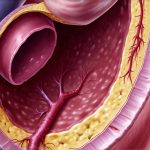Gastrointestinal (GI) cancers encompass a diverse group of malignancies affecting the digestive system, ranging from the esophagus to the rectum. These cancers represent a significant global health burden, contributing substantially to morbidity and mortality worldwide. Understanding the factors that contribute to their development and implementing proactive preventative measures are crucial steps in reducing incidence and improving outcomes. While genetic predisposition undeniably plays a role, lifestyle choices and early detection strategies offer powerful tools for mitigating risk. This article will delve into evidence-based approaches individuals can adopt to proactively safeguard their digestive health and lower the probability of developing GI cancers, focusing on modifiable risk factors and screening opportunities.
The complexity of GI cancer development stems from the interplay between genetic susceptibility, environmental exposures, and lifestyle habits. It’s important to recognize that prevention isn’t about achieving absolute certainty; it’s about reducing risk through informed choices. Many preventative strategies are interwoven with broader health recommendations – a diet rich in fruits and vegetables, regular physical activity, and avoidance of tobacco all contribute not only to digestive health but also overall well-being. Early detection, facilitated by appropriate screening programs, remains one of the most effective ways to improve prognosis if cancer does develop, allowing for timely intervention and potentially curative treatment.
Dietary Strategies for GI Cancer Prevention
Diet plays a pivotal role in both preventing and contributing to GI cancers. The types of foods we consume directly impact the health of our digestive tract and can influence cellular processes that either protect against or promote cancerous growth. A diet high in processed meats, red meat, sugary drinks, and low in fiber has been consistently linked to increased risk across several GI cancer types. Conversely, diets abundant in fruits, vegetables, whole grains, and lean protein are associated with lower risks. This isn’t merely about avoiding “bad” foods; it’s about actively incorporating protective elements into our daily meals.
The protective effects of a plant-based diet are multi-faceted. Fruits and vegetables are packed with antioxidants – compounds that neutralize harmful free radicals, reducing cellular damage and inflammation. Fiber promotes healthy digestion, adds bulk to stool, and can reduce the time potentially carcinogenic substances spend in the digestive tract. Specific nutrients like folate (found in leafy greens) have been implicated in DNA repair mechanisms, further safeguarding against cancerous mutations. A Mediterranean-style diet, emphasizing olive oil, fish, nuts, fruits, and vegetables, is often cited as an exemplary model for preventative nutrition.
Beyond specific food groups, cooking methods also matter. High-temperature cooking of meats (grilling, frying) can create carcinogenic compounds like heterocyclic amines and polycyclic aromatic hydrocarbons. Opting for lower-temperature cooking techniques – steaming, baking, poaching – minimizes the formation of these harmful substances. Reducing overall meat consumption and choosing leaner cuts when you do consume meat are also important considerations. It is essential to remember that dietary changes should be sustainable and integrated into a holistic lifestyle approach rather than restrictive or fad diets.
The Role of Specific Nutrients & Foods
Certain nutrients stand out in their potential to combat GI cancer development. Vitamin D, for example, has shown promise in reducing the risk of colorectal cancer, although optimal intake levels are still being researched. Sources include fatty fish, fortified foods, and sunlight exposure (with appropriate skin protection). Similarly, calcium, found in dairy products and leafy greens, may play a protective role in preventing colorectal adenomas – precancerous polyps that can develop into cancer.
- Cruciferous vegetables: Broccoli, cauliflower, cabbage, and Brussels sprouts contain compounds called glucosinolates, which are metabolized to isothiocyanates—substances linked to reduced cancer risk through detoxification pathways.
- Garlic & Onions: These alliums contain organosulfur compounds that have demonstrated anti-cancer properties in laboratory studies.
- Green Tea: Rich in polyphenols, green tea has been associated with a lower risk of esophageal and stomach cancers in some population studies.
It’s important to note that nutrient supplementation should not replace a healthy diet. Obtaining nutrients from whole foods provides synergistic benefits beyond isolated vitamins or minerals. Furthermore, excessive supplementation can sometimes be harmful. A balanced approach, guided by dietary recommendations and potentially discussed with a healthcare professional, is the most effective strategy.
Hydration & Alcohol Consumption
Adequate hydration is often overlooked but plays a crucial role in digestive health and cancer prevention. Water helps maintain regular bowel movements, diluting potential carcinogens and facilitating their elimination from the body. Chronic dehydration can lead to constipation, increasing exposure time of harmful substances within the colon. Aiming for at least eight glasses of water per day, adjusting based on activity level and climate, is a good starting point.
Excessive alcohol consumption significantly increases the risk of several GI cancers, including esophageal, stomach, liver, and colorectal cancer. Alcohol is metabolized into acetaldehyde, a known carcinogen that can damage DNA and disrupt cellular repair mechanisms. The risk escalates with higher levels of alcohol intake and prolonged periods of heavy drinking.
- Moderation: If you choose to drink alcohol, do so in moderation – defined as up to one drink per day for women and up to two drinks per day for men.
- Avoid binge drinking: Consuming large amounts of alcohol in a short period is particularly harmful.
- Consider abstinence: The safest option regarding cancer risk is to abstain from alcohol altogether.
Maintaining a Healthy Weight & Physical Activity
Obesity is strongly linked to an increased risk of several GI cancers, including esophageal, colorectal, and pancreatic cancer. Excess body fat promotes chronic inflammation, disrupts hormonal balance, and alters metabolic processes, all contributing to cancer development. Maintaining a healthy weight through diet and exercise is therefore a cornerstone of preventative strategy.
Regular physical activity offers multiple benefits beyond weight management. Exercise improves gut motility, reducing the time potentially carcinogenic substances spend in the digestive tract. It also boosts immune function, enhancing the body’s ability to fight off cancer cells. Aim for at least 150 minutes of moderate-intensity aerobic exercise (brisk walking, cycling) or 75 minutes of vigorous-intensity exercise (running, swimming) per week, along with strength training exercises twice a week.
The combination of a balanced diet and regular physical activity is far more effective than either approach alone. These lifestyle modifications not only reduce cancer risk but also improve overall health, enhancing quality of life and reducing the likelihood of other chronic diseases. It’s about building sustainable habits that support long-term well-being, recognizing that prevention is an ongoing process rather than a one-time event.
It is vital to remember that this information is for general knowledge and informational purposes only, and does not constitute medical advice. Always consult with a qualified healthcare professional for any health concerns or before making any decisions related to your health or treatment.


















